Our picks
Why we chose these providers
Sort by
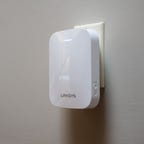
Linksys RE7310
A solid second choice for best Wi-Fi extender
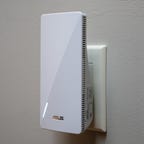
Asus RP-AX56
Best performance for a Wi-Fi extender (with a big caveat)
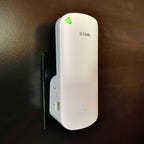
D-Link DAP-X1870
Wait for a sale for this Wi-Fi extender
There’s a lot to like about Wi-Fi extenders. For as little as $20, you can eliminate dead zones in your house without buying a whole new setup, and installation is as simple as plugging the extender into an electrical outlet and connecting it to your Wi-Fi router. If that sounds too good to be true, it kind of is.
CNET’s testing has found that Wi-Fi extenders can be a great solution if you’re looking to improve the connection in a single room, but you’ll probably be disappointed if you’re hoping to boost the speeds to an entire floor or wing of your home. For that, you’ll probably want to upgrade to a mesh system.
What is the best Wi-Fi extender overall?
The best Wi-Fi extender for most people is the TP-Link RE605X. While it’s slightly more expensive than other models at $100, it delivered significant speed boosts in every room I tested, and it offers full support for Wi-Fi 6 speeds.
If you’re looking for something more affordable, there are plenty of options for under $50, although not all of them have Wi-Fi 6 support. I’ve spent the past few years regularly testing them out to find the best of the bunch. After countless tests, my data identified the range extenders that reigned supreme. Let’s get right to them.
Best Wi-Fi extenders for 2024 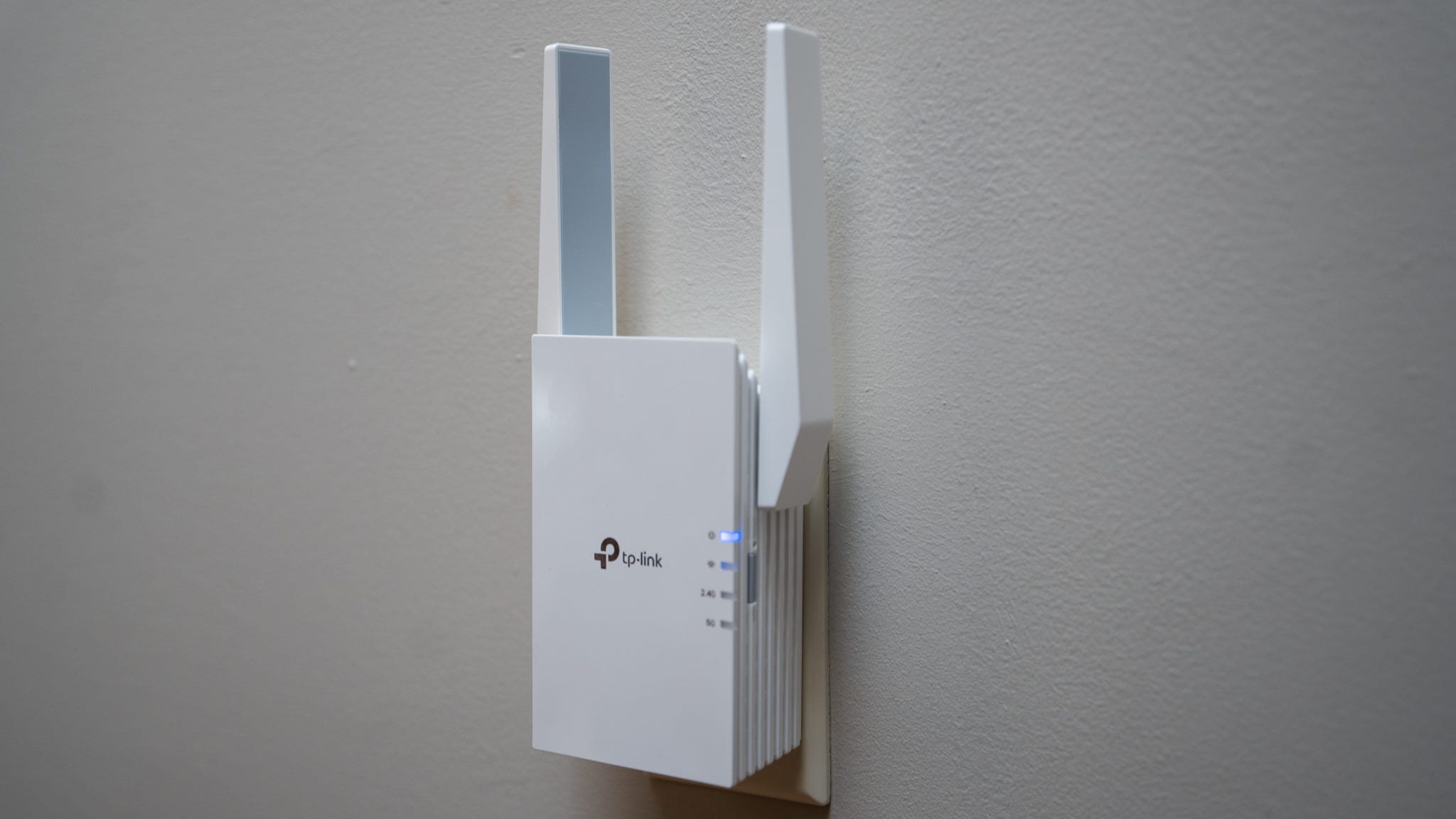 Chris Monroe/CNET
Chris Monroe/CNET
TP-Link RE605X
Best overall Wi-Fi extender
TP-Link makes some of the most popular picks in the range extender category, with a fairly wide variety of options to choose from at various price points. If you’re buying one in 2024, I think you should put the TP-Link RE605X right at the top of your list. At $100, it’s far from the most affordable extender on the market (keep reading for the value picks), but with a highly capable AX1800 design, full support for the latest Wi-Fi 6 speeds and features, adjustable antennas and a helpful, easy-to-use control app with strong reviews on both Android and iOS, it’s about as well-rounded as range extenders get.
The performance is particularly sharp too. In my tests at the CNET Smart Home, an RE605X in the basement was able to extend the router’s signal from upstairs just fine, giving my upload and download speeds a significant boost in every room I tested. Throughout the entire 5,800-square-foot-home, among all the extenders I tested, the RE605X delivered the fastest average upload speeds to both Wi-Fi 5 and Wi-Fi 6 devices, the fastest average download speeds to Wi-Fi 6 devices and the second fastest average download speeds to Wi-Fi 5 devices.
By default, the extender puts out its own separate network when you first pair it with your router, and that network will use the same password as your original network, and the same SSID with “-EXT” added to the end. That’s better than extenders that put out an unsecured network by default — and if you use the app to delete that “-EXT” bit, it’ll automatically sync up with your original network and work invisibly to keep you better connected, which is ideal. All of that makes this extender an easy recommendation.
…Read more
$100 at Best Buy
$80 at Target
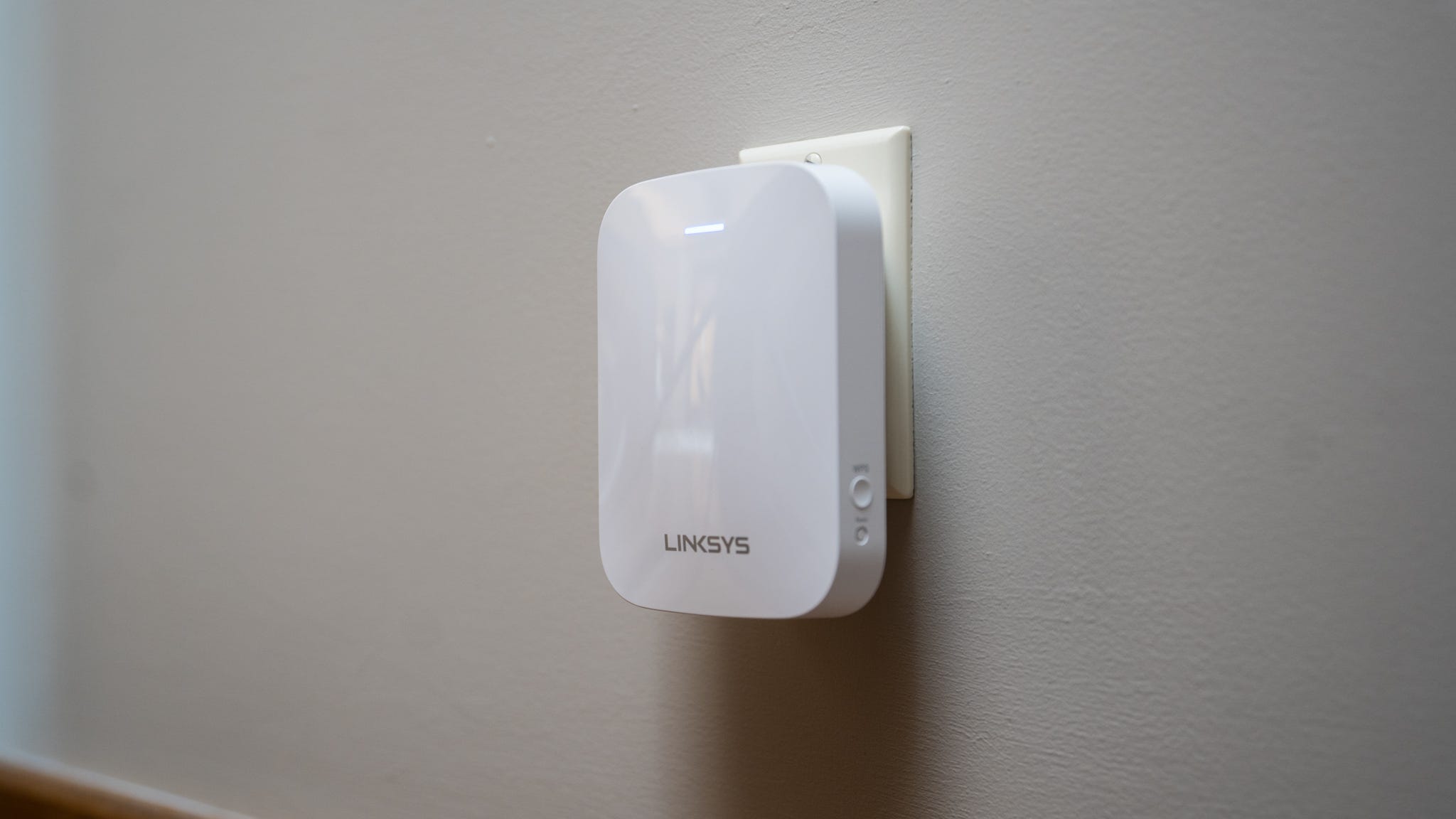 Chris Monroe/CNET
Chris Monroe/CNET
Linksys RE7310
A solid second choice for best Wi-Fi extender
TP-Link took the top spot, but the Linksys RE7310 was very close behind it, and would be almost equally as good on most home networks. In the CNET Smart Home, where we have a fiber internet plan with uploads and downloads of up to 150Mbps, the RE7310 returned average Wi-Fi 6 downloads throughout the entire multistory house of 132Mbps. That’s only 4Mbps behind that top pick from TP-Link. As for the uploads, Linksys finished with an average whole-home speed to my Wi-Fi 6 test device of 124Mbps. That’s only 2Mbps behind TP-Link.
The only thing keeping me from saying that the two finished in a virtual tie is that the RE7310 was slightly less impressive with earlier-gen Wi-Fi 5 devices, particularly with respect to upload speeds. Still, the performance was solid across the board, and strong enough for me to take video calls in the Smart Home’s basement dead zones, something I would have struggled with using just the single router I ran my tests on. It’s a bit bulky-looking, but the RE7310 is the best Linksys range extender I’ve tested yet, and it’s an especially great pick if you can catch it on sale.
…Read more
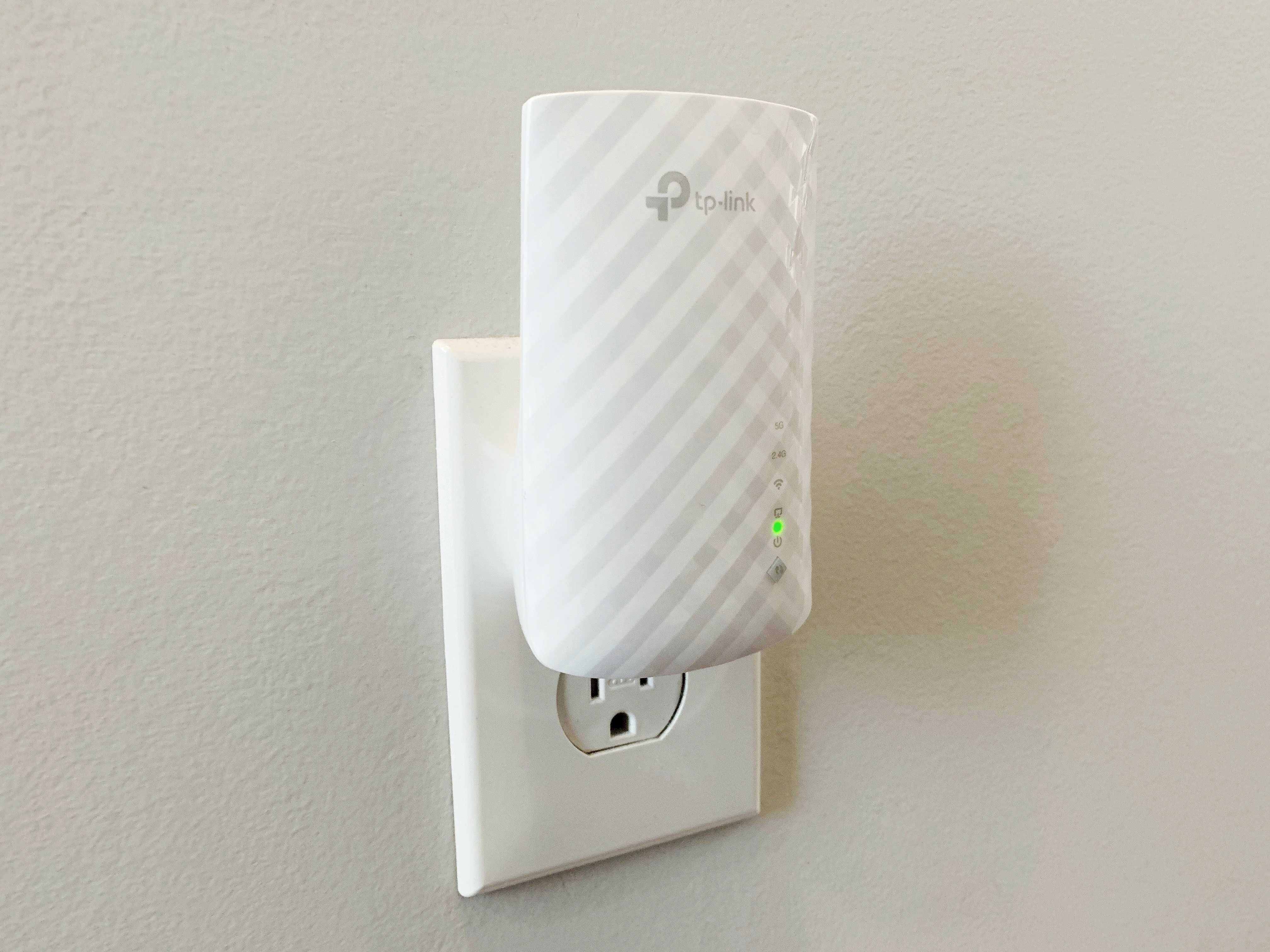 Ry Crist/CNET
Ry Crist/CNET
TP-Link RE220
The best budget Wi-Fi extender
The TP-Link RE220 was the least expensive range extender during my first run of at-home tests, but that didn’t stop it from outperforming everything else I tested at every turn. As Wi-Fi extenders go, it’s fast, it’s reliable, it works with just about every Wi-Fi router out there, and it’s easy to use. And, as of writing this, it costs even less than I paid for it initially — down to less than $20.
Plug it in and press the WPS button to pair it with your home network, and it’ll begin broadcasting its own networks on the 2.4GHz and 5GHz bands. Both offered steady Wi-Fi speeds throughout my home, including average download speeds on the 5GHz band of at least 75Mbps in every room access point I tested, along with strong upload speeds. The RE220 never once dropped my connection, and its speeds were consistent across multiple days of tests during both daytime and evening hours.
It’s a little long in the tooth at this point, and it won’t wow you with Wi-Fi 6 speeds, but the strong ease of use and the steady, dependable level of performance it offers mean it’s still an absolute steal. It’s not as fast as the top models I’ve tested in the years since, and I haven’t had a chance to retest it at the CNET Smart Home just yet — but it’s still a great choice if you want to boost the signal from the Wi-Fi router to a back room that sits beyond the router’s reach, but you’d like to pay as little as possible to get the job done.
…Read more
$18 at Walmart
$18 at Amazon
$18 at B&H Photo-Video
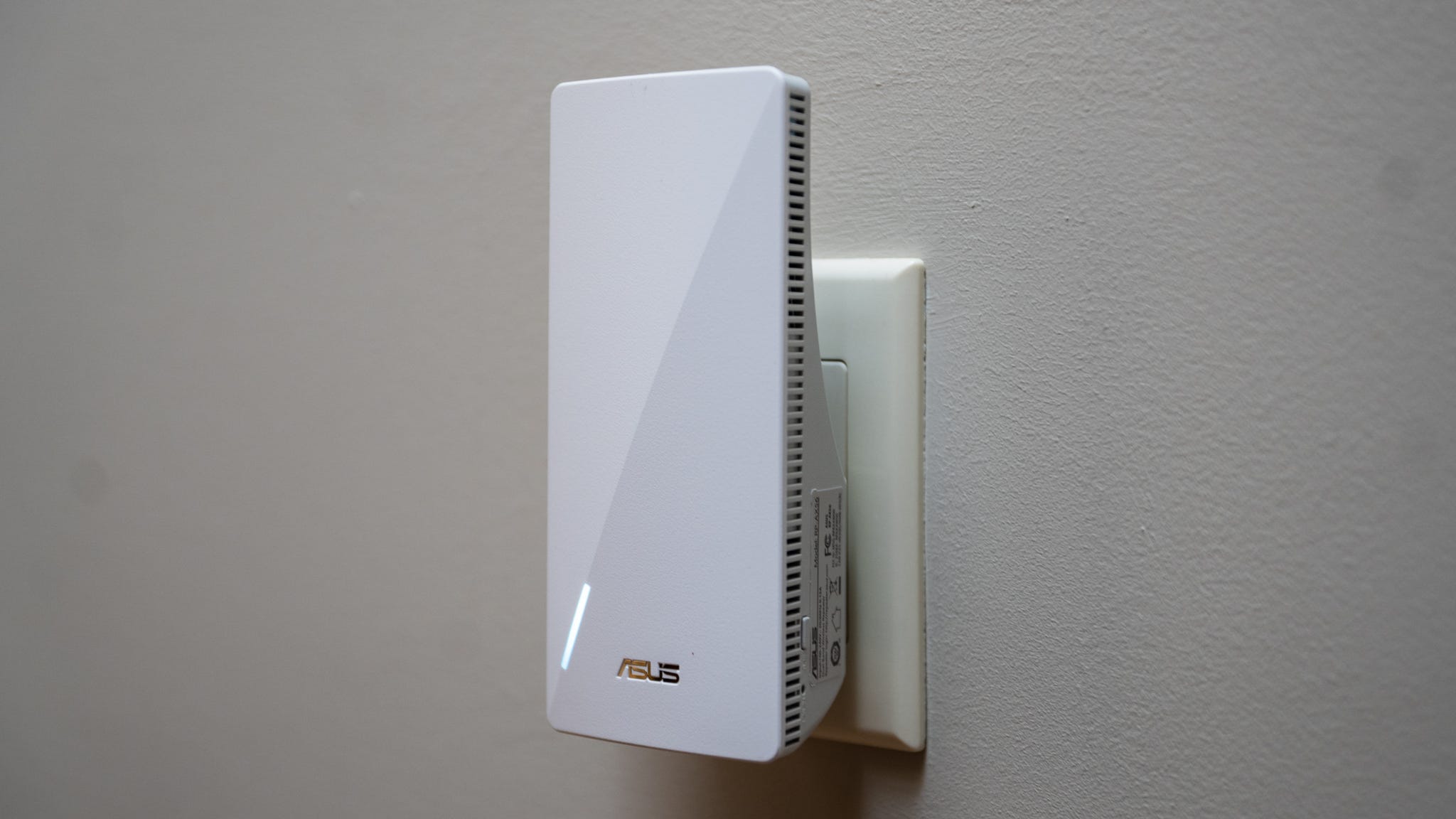 Chris Monroe/CNET
Chris Monroe/CNET
Asus RP-AX56
Best performance for a Wi-Fi extender
(with a big caveat)
TP-Link and Linksys each put in strong performances during this latest round of tests, but it was arguably Asus that led the way with the RP-AX56, a Wi-Fi 6 range extender that retails for $110. However, a poor approach to device security keeps me from recommending it.
Let’s start with the good. The RP-AX56 finished in a virtual tie with TP-Link for the fastest average download speeds to my Wi-Fi 6 test laptop, and it led all range extenders when I reran my tests with a Wi-Fi 5 iPad Air 2. On top of that, the RP-AX56 delivered the fastest average download speeds to both Wi-Fi 6 and Wi-Fi 5 devices in the CNET Smart Home’s basement guest bedroom, which was the most persistent dead zone throughout my tests.
That said, the RP-AX56 requires a bit of futzing. After I first paired it with the router, it put out its own, separate Wi-Fi network with a generic name and no password at all. That’s something you’ll want to change immediately, but on iOS the 1.5-star reviewed Asus extender app doesn’t offer a quick option for changing the SSID and password. Instead, you’ll need to enter the extender’s IP address into a browser bar and log in using its default admin credentials — and by the way, those credentials were username: admin and password: admin. So, yeah, you’ll want to change those, too.
Once you’ve done that, you can change the SSID and password to match your router, at which point the extender will work seamlessly within your existing network. Still, that’s a pretty low level of default security for a plug-and-play device that most people won’t want to futz with at all. I’ll keep an eye out for updates on this one — if Asus makes some changes to the app and to the default settings, the RP-AX56 could jump right up into the top picks.
…Read more
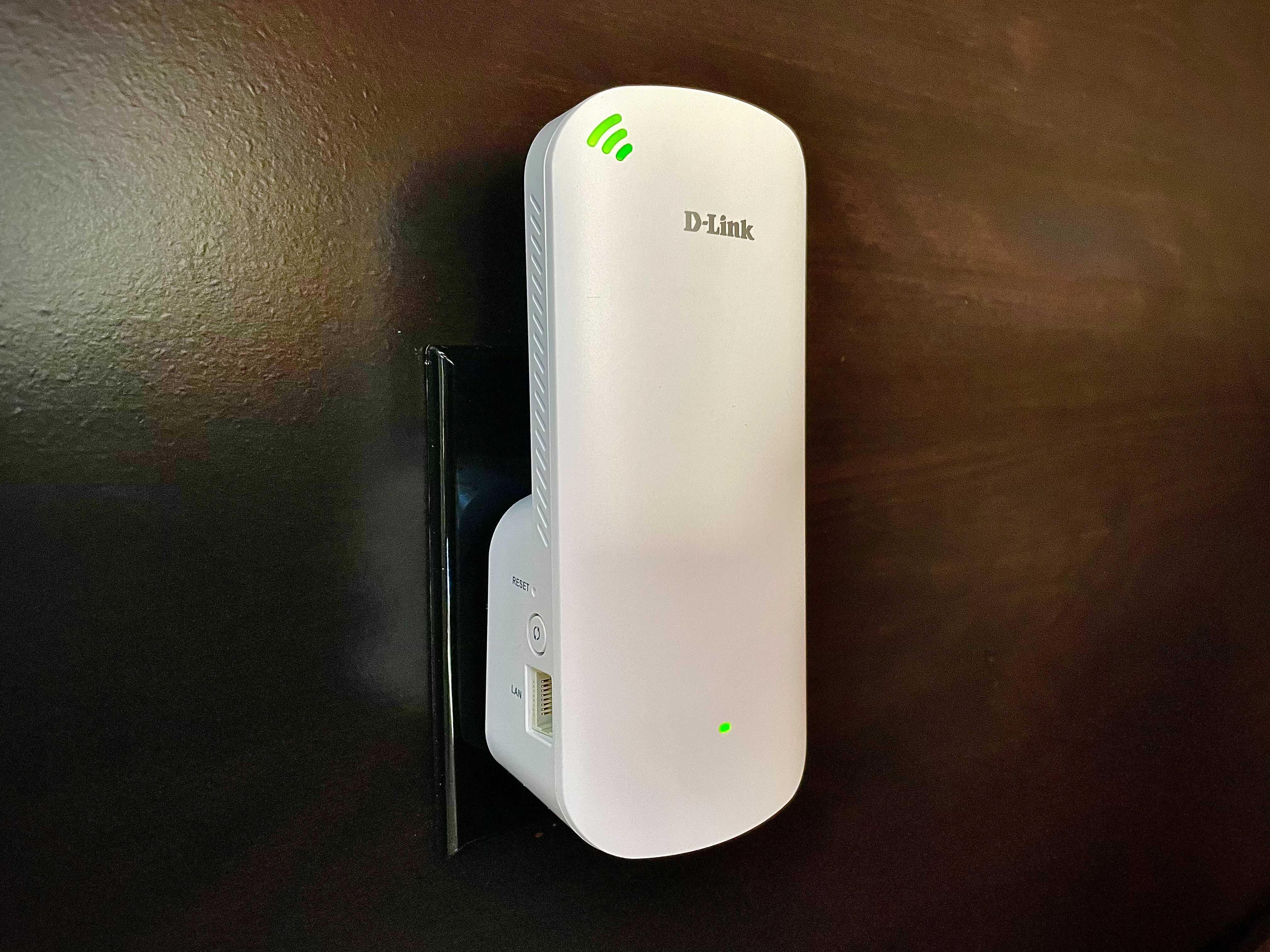 Ry Crist/CNET
Ry Crist/CNET
D-Link DAP-X1870
Wait for a sale for this Wi-Fi extender
Another strong model from my tests, the D-Link DAP-X1870 is an excellent performer that does a great job of creating a single, unified network as soon as you pair it with your router. That keeps things easy, but at a retail price around $64, it feels a bit too expensive here in 2024.
I’d probably stick with the $16 TP-Link RE220 if I were just looking for the best value pick. I’ll keep an eye out for any other good sales and update this post as I spot them.
…Read more
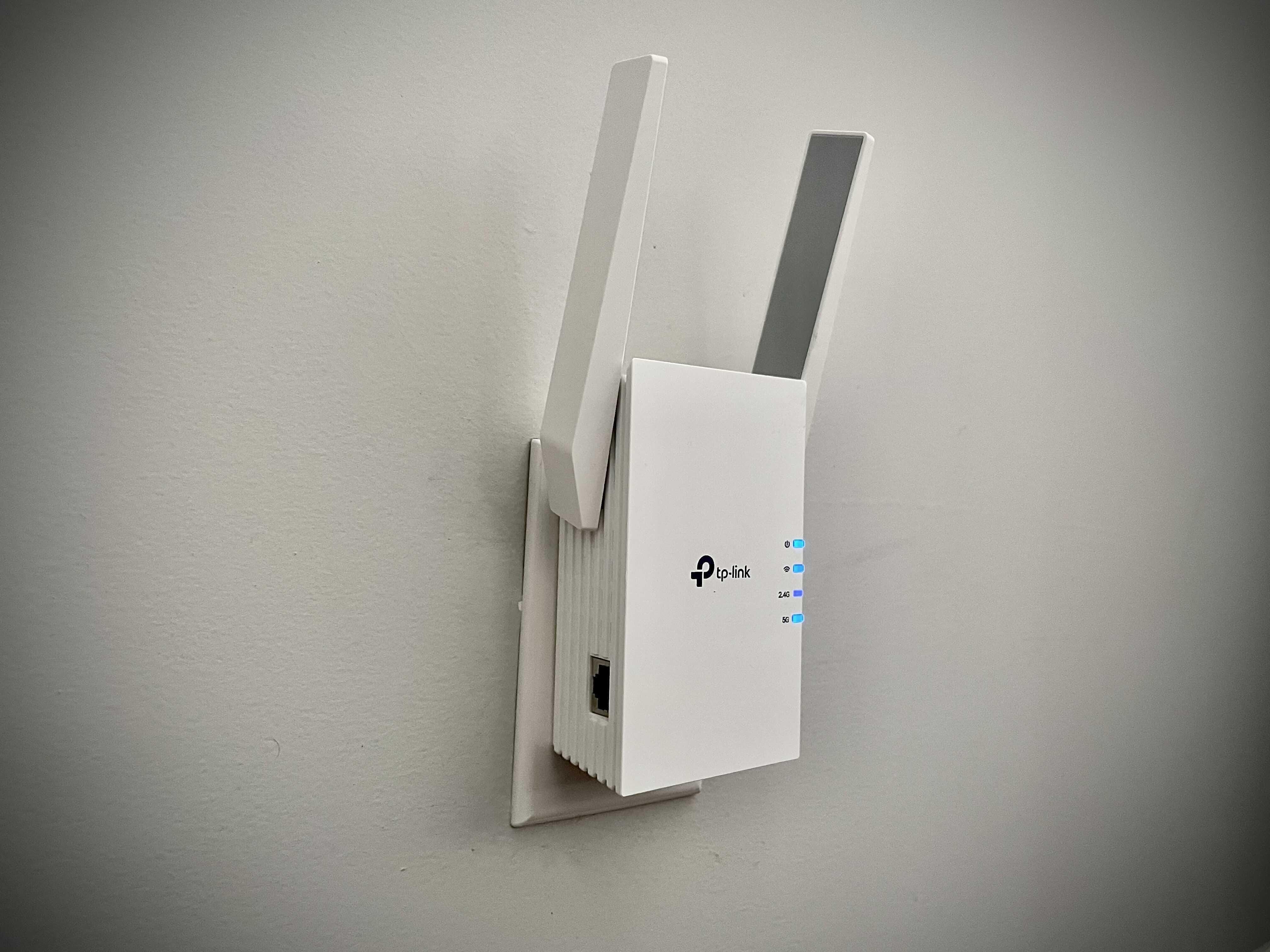 Ry Crist/CNET
Ry Crist/CNET
TP-Link RE505X
Solid Wi-Fi extender performance for the price
Last year’s top pick, the RE505X is just a slightly less powerful version of the RE605X that costs a bit less. I wasn’t able to retest it at the CNET Smart Home yet, but I’ll update this post when I get the chance. For now, I think performance-minded users will be glad they spent up for the better upload speeds of the RE605X or the Linksys RE7310, and value-minded users will likely be better served with the less expensive D-Link EaglePro AI and TP-Link RE220 range extenders.
That leaves the RE505X as a bit of a middle child at this point, but I’d pounce on it if the price dropped substantially below its current price of $60, as it was an extremely capable and consistent performer in my earlier tests.
…Read more
$66 at Walmart
$60 at Best Buy
$30 at Amazon
What is a Wi-Fi range extender?
Also called a Wi-Fi signal booster, a range or Wi-Fi extender is a compact, plug-in device that is simple and hassle-free to implement. Wi-Fi extenders use built-in Wi-Fi radios and antennas to pair wirelessly with your router. No Ethernet cable is required. Plug in one near the edge of your router’s wireless range and pair it with the network, and it’ll start rebroadcasting the signal farther out for significantly faster internet speeds throughout your home.
Should I buy a Wi-Fi extender?
Wi-Fi extenders are great options when you have a single room that you want to give a speed boost. Wi-Fi extenders are generally less expensive than upgrading to a full-fledged mesh router with its own mesh Wi-Fi systems and range-extending satellite devices. Plus, they are generally a cinch to set up, they’ll work no matter what brand of router you’re using, and you can typically use the same SSID and password as your original router.


